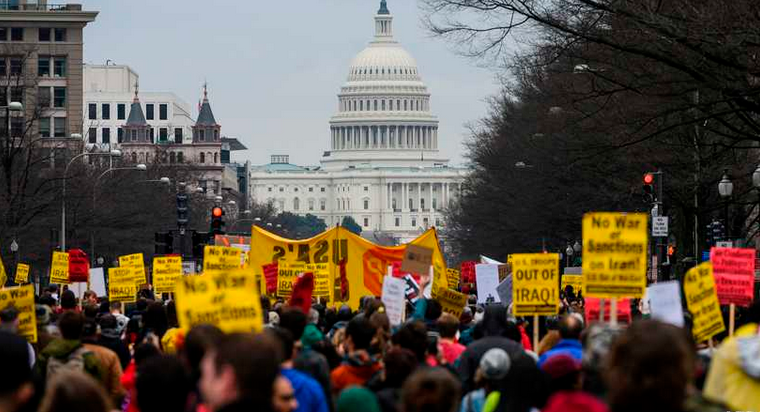
Max Abrahms blogs in a recent Political Violence @ a Glance post, that terrorism is an ineffective tactic for motivating government concessions. Why would a group revert to terrorism if it encourages intransigence from a government rather than accommodation? Why do militant groups use terrorism if it doesn’t work? Abrahms calls this dilemma, “The Puzzle of Terrorism”. Abrahms and Potter recently published an innovative perspective of terrorism – offering the explanation that leadership deficits provide rogue foot soldiers an opportunity for tactical freedom, which leads to indiscriminate attacks against civilians.
My research offers an alternative perspective to solve this puzzle. Terrorism is certainly strategic, but perhaps not only in terms of inducing government concessions. Extremist groups use terrorism to preserve group health by radicalizing moderates and gaining human capital – a critical organizational resource. Without dogmatists, terrorists cannot sustain organization capacity and pursue ideological or political goals. If we look at decisions regarding attack targets, timing and size as motivated by strategic and deliberate recruitment and political mobilization goals (i.e. gaining publicity, recruits and calling attention to grievances), then we can understand why terrorism is not directly intended to and is ineffective in motivating government concessions.
Terrorism is a form of “political jujitsu” to replenish a group’s stockpile of human capital. Importantly, the “political jujitsu” of terrorism assumes two different strategies. Domestic terrorism reflects a strategy of retribution. Transnational terrorism reflects a strategy of provocation. I address transnational terrorism in this post.
One objective of transnational attacks is to motivate indiscriminate counterterrorism retaliation that punishes both the responsible terrorists and innocent civilians. Indiscriminate counterterrorism radicalizes moderate populations, and, creates calls for vengeance that terror groups can exploit to supplement their rank and file. Israeli counterterrorism has been shown to create new terrorists, and, imprisoned PKK fighters have credited their membership to Turkey’s violent abuse of their relatives and friends.
Thinking of transnational terrorism as a strategy of provocation is not new, but defining how the strategy is fulfilled is under explored. Some countries are more likely than other to retaliate. Therefore, the attack target, not how many people die, makes provocation successful. Terrorist must identify countries susceptible to provocation. The key is to target countries where political leaders have an incentive for violence. A declining economy or domestic political turmoil are signals of a country’s susceptibility. When the economic or political problem cannot be addressed through policy, leaders are incentivized to divert the public’s attention through aggressive foreign policy. Provocation is most likely to succeed when political leaders in the attacked country have incentives for diversionary conflict.
The data support my argument. In advanced economic countries, from 1981-2011, a weak domestic economy, on average, increased a country’s risk of transnational terrorism by 13.8%. The figure below, with 95% confidence intervals, illustrates this dynamic. Across the sample, a weakening domestic economy certainly increases a country’s risk of being the target of transnational terrorism. Targeting diversion-seeking leaders increases the probability of provoking retaliation as aggressive foreign policy can rebuild political capital and divert the public’s criticism.
Because terrorism fails to consistently motivate government concessions doesn’t mean that The Strategic Model of Terrorism is fundamentally broken. The primary flaw is assessing the effectiveness of terrorism through too narrow a window. Terrorists certainly have policy preferences and seek concessions from the government, but attacks also aim to accomplish other objectives. Attacks are, quite importantly, a mechanism for accomplishing two organizational necessities of extremist groups – manipulating government violence to radicalize moderates and mobilizing supporters.
Graig R. Klein is a Ph.D candidate in Political Science at Binghamton University.








4 comments
Reblogged this on Concierge Librarian.
Reblogged this on cautivadulce.